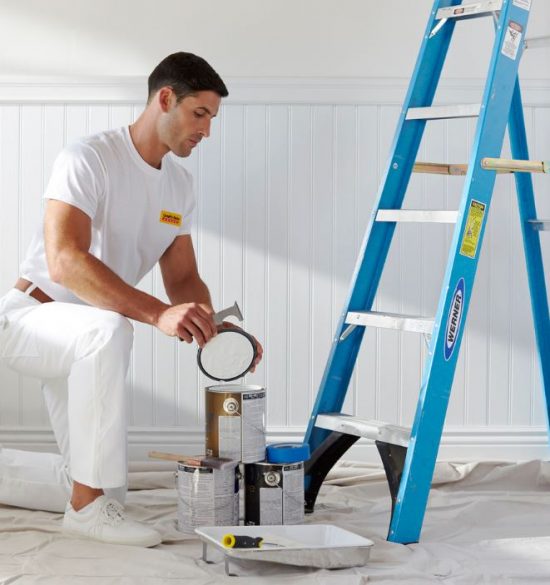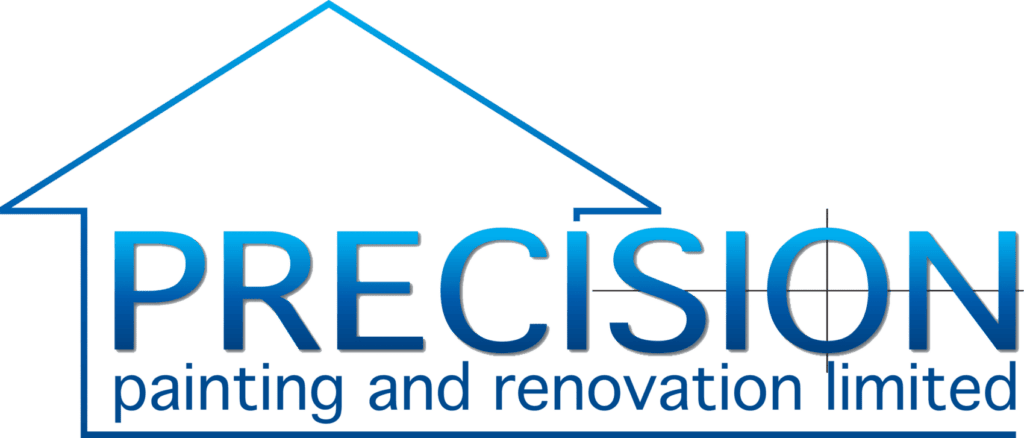When it comes to transforming a home or commercial space with color and precision, hiring the right person can make all the difference. The term professional painters service often implies quality, consistency, and reliability, but how does that stack up against hiring an amateur contractor? Though both might carry a brush and bucket, their results, approach, and ethics are vastly different. Let’s explore what sets them apart.

Mastery of Technique
Professional painters invest time mastering the craft. From surface preparation to brush stroke control, they’ve honed their techniques through countless projects. Every corner, trim, and surface is handled with care, resulting in smooth, even coats free of drips or brush marks.
Amateur contractors, while they may be well-meaning, often lack this level of refined skill. Common signs include uneven application, visible roller marks, and poor edging around baseboards or ceilings. Technique is something that cannot be rushed or improvised—it comes from repetition, training, and a genuine respect for the craft.
Quality of Materials Used
Paint isn’t just paint. Professional painters know the importance of using high-quality primers, paints, caulks, and tools. They understand how paint chemistry interacts with different surfaces and environmental conditions, and they make informed decisions about which products will provide durability, vibrancy, and longevity.
On the other hand, amateur contractors may prioritize saving money—often at the expense of material quality. Subpar paint leads to premature fading, chipping, or peeling. Cheap brushes and rollers shed bristles and leave inconsistencies. Without a deep knowledge of the products, results can deteriorate quickly.
Preparation Standards
One of the most significant differences lies in how each prepares a space before the first stroke of paint is even applied. Professional painters treat preparation as a vital step—not an afterthought. They clean, sand, patch, prime, and mask meticulously. Surfaces are inspected for moisture, mold, and damage before any paint touches them.
An amateur may rush this stage or skip it entirely. Poor prep work leads to issues like peeling, bubbling, and poor paint adhesion. Skipped sanding, for instance, causes gloss paints to slide right off. Improper patching can show through even the thickest coats. Preparation is invisible once complete—but its absence is glaring.
Time Management and Reliability
Professional painters work on clear schedules. They provide accurate timelines, communicate delays if they occur, and focus solely on the task at hand. They show up on time, keep job sites clean, and respect your home or business environment.
An amateur contractor might not bring the same discipline. Missed deadlines, long gaps between workdays, and poor communication are common frustrations. A two-day job can stretch into a week or more due to a lack of organization or overbooking of projects. That inconsistency often leads to client dissatisfaction.
Insurance and Liability
Licensed professionals carry liability insurance and often workers’ compensation coverage. This protects both the client and the painter in the event of damage, accidents, or injuries on the job. It’s a standard part of professional operation.
Amateurs may not have any insurance, putting the financial risk squarely on the homeowner. If something goes wrong—a ladder falls through a window, paint spills on valuable furniture, or someone gets injured—you’re left footing the bill.
Detailing and Clean-Up
The best painters know that it’s the little things that matter. Crisp lines where walls meet ceilings, perfectly taped edges, even finishes, and no trace of paint where it doesn’t belong. Cleanup is equally important—dust-free rooms, furniture covered and returned to its place, no leftover tools or debris.
Amateur work often leaves behind imperfections. Sloppy taping leads to paint bleeds. Paint splatters might go unnoticed until it’s too late. Trash and tools might linger long after the job is “done.” Detailing defines the difference between “good enough” and “exceptional.”
Communication and Professionalism
From the first phone call or consultation, professionals make every interaction clear and respectful. They listen to your preferences, make thoughtful suggestions, and document the process through quotes, contracts, and updates.
Amateurs may rely on vague agreements, changing prices, or unclear expectations. A lack of professional structure can lead to miscommunication, surprise costs, and a final result that doesn’t align with your vision. Professionalism extends beyond painting—it defines the entire client experience.
Longevity and Warranty
Reliable painters stand by their work. They offer written warranties that cover peeling, fading, or blistering within a specific timeframe. You can count on them to come back and fix any issues that fall within the agreed terms.
Amateur contractors typically don’t offer warranties. If something goes wrong a few weeks later, they may be unreachable—or unwilling—to make it right. That lack of accountability can cost you both time and money in the long run.
Safety Practices
Safety on a job site is critical. Professional painters follow safety protocols, especially for high ceilings, stairwells, or exterior jobs involving scaffolding and ladders. They wear appropriate gear, use stable equipment, and ensure the environment is safe for both workers and residents.
Amateurs may not be aware of—or may ignore—OSHA guidelines and other safety standards. A fall from a ladder or misuse of flammable materials can have serious consequences. Professionals plan for risk and mitigate it. Amateurs often don’t.
Long-Term Value
Though hiring a professional might seem more expensive upfront, it often pays for itself in quality and durability. Their work enhances the property’s aesthetic and value, making future repainting unnecessary for many years.
Conversely, amateur work often requires touch-ups or full repainting sooner than expected. Fixing mistakes can cost more than the initial savings. Investing in professionalism saves time, money, and hassle in the long term.
Attention to Aesthetics
Professionals have an eye for design. They can advise on color combinations, finishes, and visual effects based on lighting, room size, and mood. Their understanding of tones and palettes brings out the best in a space.
Amateurs may lack this artistic sensitivity. They follow instructions, but don’t always think critically about how choices will look in the final outcome. That can lead to mismatched tones, poor finish combinations, or spaces that feel “off.”
Tools and Equipment
Experienced painters come equipped with a wide range of specialized tools—sprayers, edgers, scaffolds, moisture meters, and sanding systems. These allow them to work efficiently and handle complex tasks with precision.
Amateurs often rely on basic brushes and rollers, limiting what they can accomplish. Complex textures, large surfaces, or specialty finishes might be beyond their capability due to a lack of the right tools.
Consistency Across Projects
Whether it’s a single room or an entire commercial building, professionals deliver consistent results. They follow protocols, maintain quality, and ensure uniformity across surfaces and locations.
Amateurs may be unpredictable. One room may look passable, while another feels rushed or unfinished. Consistency is one of the greatest challenges for anyone without professional standards.
Respect for Your Space
Painters are guests in your home or business. Professionals act accordingly. They cover furniture, protect floors, mask fixtures, and leave your space in pristine condition. They treat every job—regardless of size—with care and respect.
Amateurs sometimes forget the importance of cleanliness and discretion. It’s not uncommon to find paint in outlets, baseboards unsanded, or a general disregard for the property. Respect is visible through behavior, attention, and discipline.
Project Planning and Coordination
Professionals often bring project managers or team leads to ensure scheduling, supply ordering, and workflow are seamless. This allows for coordination between multiple rooms, contractors, or timelines.
Amateurs usually work solo or with untrained helpers, lacking structure. As a result, schedules fall apart, supplies are delayed, or tasks are duplicated. Disorganized projects can spiral into frustration quickly.
Transparency with Pricing
Honest pricing matters. Professionals offer clear estimates, outlining materials, labor, and timelines with no surprises. If anything changes, it’s communicated and documented.
Amateurs sometimes quote lower to win a job, only to inflate the price mid-project. Others may skip contracts altogether, making disputes hard to resolve. Pricing transparency is a sign of integrity.
Local Regulations and Permits
Professionals are aware of local codes, lead paint laws, environmental regulations, and permit requirements. If a job requires a specific protocol—like EPA certification for lead-safe work—they’re qualified to comply.
Amateurs may be unaware of these requirements. Unpermitted or non-compliant work can lead to fines, property sale complications, or health hazards. Legal knowledge is part of professional responsibility.
Emotional Investment
Professionals take pride in their reputation and craftsmanship. Every brush stroke reflects their commitment to excellence. They treat each project as an opportunity to elevate their legacy.
Amateurs may see painting as just a gig. The emotional investment—the desire to wow clients, to build referrals, to earn trust—is often missing. Passion for the trade is hard to fake.
Why Choose Precision Painting?
At Precision Painting, we bring professionalism to every project. Our work speaks for itself—seamless finishes, respectful service, transparent communication, and a commitment to excellence that ensures every room feels like it should. We don’t believe in shortcuts, compromises, or half-finished work. What we deliver is not just a painted wall, but a space elevated with precision, purpose, and pride.
Looking to transform your home or commercial property with care and craftsmanship? Choose Precision Painting—where quality isn’t just a promise, it’s the standard.

